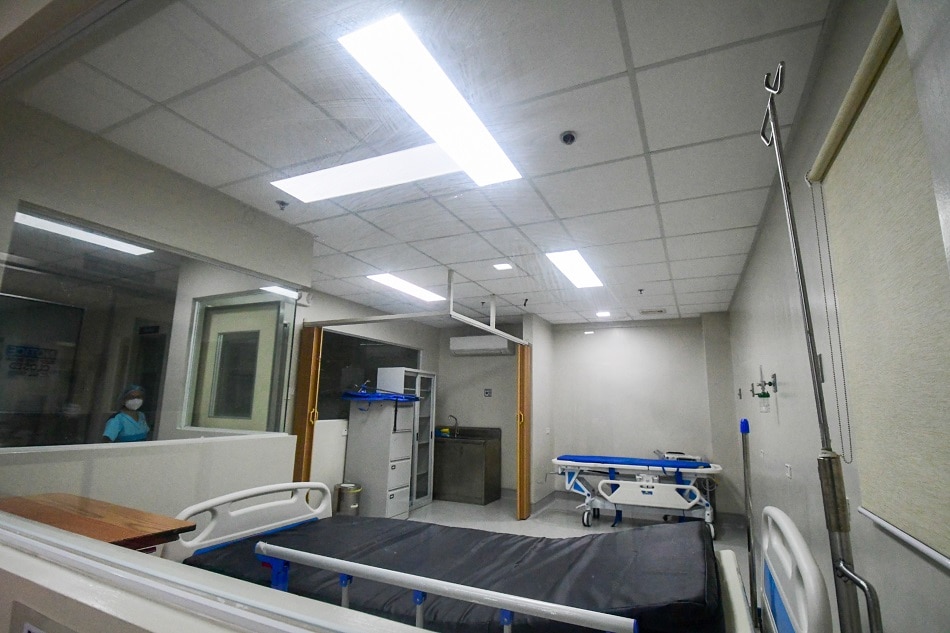70% of deaths in PH due to noncommunicable diseases, says WHO | ABS-CBN

Welcome, Kapamilya! We use cookies to improve your browsing experience. Continuing to use this site means you agree to our use of cookies. Tell me more!
70% of deaths in PH due to noncommunicable diseases, says WHO
70% of deaths in PH due to noncommunicable diseases, says WHO
John Gabriel Agcaoili,
ABS-CBN News
Published Sep 23, 2022 03:15 AM PHT
MANILA – Non-communicable diseases (NCDs) led to an estimated 70 percent of deaths in the Philippines, the World Health Organization said in a recent report.
MANILA – Non-communicable diseases (NCDs) led to an estimated 70 percent of deaths in the Philippines, the World Health Organization said in a recent report.
According to WHO, 511,748 Filipinos succumbed to NCDs in 2019.
According to WHO, 511,748 Filipinos succumbed to NCDs in 2019.
Meanwhile, 72 percent of deaths among women were because of NCDs; among men, that number was at 68 percent.
Meanwhile, 72 percent of deaths among women were because of NCDs; among men, that number was at 68 percent.
Fifty-two percent of those who died due to NCDs were under 70 years old, WHO noted.
Fifty-two percent of those who died due to NCDs were under 70 years old, WHO noted.
ADVERTISEMENT
The probability of premature mortality, or dying between ages 30 and 70 from NCDs in the Philippines was at 25 percent, the UN-backed health agency added.
The probability of premature mortality, or dying between ages 30 and 70 from NCDs in the Philippines was at 25 percent, the UN-backed health agency added.
It further reported that 34 percent of the total fatalities recorded in 2019 were related to cardiovascular diseases; 24 percent were communicable, maternal, perinatal, and nutritional conditions; 13 percent were caused by other NCDs; 9 percent were cancer-induced, and the remaining percentages were derived from chronic respiratory diseases, diabetes, and injuries.
It further reported that 34 percent of the total fatalities recorded in 2019 were related to cardiovascular diseases; 24 percent were communicable, maternal, perinatal, and nutritional conditions; 13 percent were caused by other NCDs; 9 percent were cancer-induced, and the remaining percentages were derived from chronic respiratory diseases, diabetes, and injuries.
WHO director general Tedros Adhanom Ghebreyesus has urged global leaders to act immediately on NCDs.
WHO director general Tedros Adhanom Ghebreyesus has urged global leaders to act immediately on NCDs.
During the first annual gathering of state leaders for the Prevention of NCDs at the 77th United Nations General Assembly, Tedros and the WHO released their report “Invisible Numbers: The true scale of noncommunicable diseases".
During the first annual gathering of state leaders for the Prevention of NCDs at the 77th United Nations General Assembly, Tedros and the WHO released their report “Invisible Numbers: The true scale of noncommunicable diseases".
“This report is a reminder of the true scale of the threat posed by NCDs and their risk factors,” Tedros said. “There are cost-effective and globally applicable NCD interventions that every country, no matter its income level, can and should be using and benefitting from – saving lives and saving money.
“This report is a reminder of the true scale of the threat posed by NCDs and their risk factors,” Tedros said. “There are cost-effective and globally applicable NCD interventions that every country, no matter its income level, can and should be using and benefitting from – saving lives and saving money.
According to WHO, NCDs annually kill 17 million people under age 70, of whom 86 percent live in low and middle-income countries.
According to WHO, NCDs annually kill 17 million people under age 70, of whom 86 percent live in low and middle-income countries.
"The COVID-19 pandemic further exacerbated the NCD burden by delaying and disrupting care, and in the early months of the pandemic, 75 percent of countries reported disruption to essential NCD services because of lockdown restrictions and channeling of resources," it said.
"The COVID-19 pandemic further exacerbated the NCD burden by delaying and disrupting care, and in the early months of the pandemic, 75 percent of countries reported disruption to essential NCD services because of lockdown restrictions and channeling of resources," it said.
RELATED VIDEO
ADVERTISEMENT
ADVERTISEMENT


